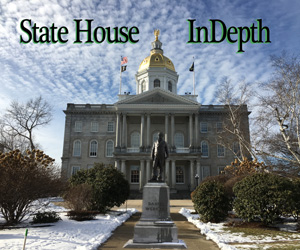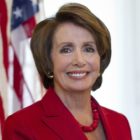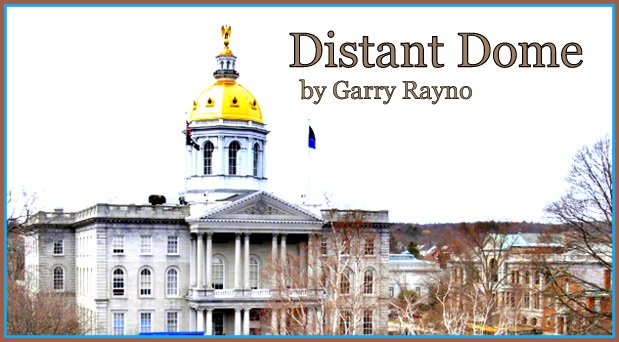By GARRY RAYNO, Distant Dome
CONCORD – One of the most anticipated bills this session has a public hearing this week, Law enforcement is expected to oppose the bill and substance abuse treatment organizations and advocates have announced they oppose the proposed legislation as well. The lengthy bill lays out how the state would regulate marijuana products, the licensing and regulation of sales establishments, and the taxation scheme based on product quality. Taxes are projected to produce between $20 million to $30 million in state revenue annually. Surrounding states — Massachusetts, Maine and Vermont —have legalized recreational use as have six other states, mostly in the west. The public hearing on HB 481 will begin at 1 p.m. Tuesday in Representatives Hall in the State House. The hearing is before the House Criminal Justice and Public Safety Committee. State Rep. Renny Cushing, D-Hampton Committee chair, Rep. Renny Cushing, D-Hampton, is the prime sponsor of the bill. Divided We What? For many decades, American voters have said they prefer divided government. Divided government is one party controlling the executive branch while the other party controls one or both houses of the legislative branch. In recent times, voters have given politicians about two years of unified government before saying enough of this. That is what makes our republic different from parliamentary government where the ruling party is the government. There is the loyal opposition, but the ruling party rules everything. And in many countries with parliamentary government, elections are held every five years unless there is an event compelling an election such as a no-confidence vote. Forget compromise Divided government once meant compromise between the two parties so everyone would receive a little of what they needed, but today it means undoing what the other party did to enact your agenda, which will be undone by the next partisan swing. Over the last few decades, voters have had little patience with unified government. It took one term for voters to put Republicans in control of Congress for the remainder of Clinton’s presidency. The 2000 election gave Republicans control of the White House and the U.S. House, but Democrats were the majority in the U.S. Senate. The next two elections in 2002 and 2004 gave Republicans control of government but in the 2006 election, Democrats seized control of both the House and Senate. Democrats controlled government after the 2008 election with Barack Obama in the White House, but that would be the only term of unified government as Republicans took control of the U.S. House and held it for the remainder of Obama’s presidency. The 2016 election gave Republicans control with Donald Trump in the White House and GOP majorities in the House and Senate. And the last election put Democrats in control of the U.S. House following what is almost a tradition of one term of unified government and then divided rule. Same in NH New Hampshire has had divided government more than not during the same period. Former Gov. Jeanne Shaheen won in 1996 and had a Democratic Senate for one of her three terms, but the rest were with Republicans in control of the House and Senate. Former Gov. Craig Benson Republicans had unified government for one term when Craig Benson was elected governor in the 2000 election, but then Democrat John Lynch became governor for the next eight years. He had a Republican controlled legislature in his first and last term and in between was a unified government under Democratic control. Republicans took control of government after the 2016 elections with Chris Sununu winning the governor’s race but unified government lasted just one term and Democrats took control of the House and Senate after last year’s election. Judging from the first few weeks of divided government in Washington and New Hampshire, change is hard. Disciplined Pelosi In the nation’s capital, Democrat Nancy Pelosi regained the gavel as Speaker of the House. Republicans have demonized her for years and you can see why. She has been in Washington a long time, knows how the process works and is disciplined. Her strategy during the government shutdown over Trump’s border wall kept the responsibility for the upheaval on the president shoulders. House Speaker Nancy Pelosi Many Republicans knew they, too, would bear more and more of the blame the longer the shutdown dragged on and they pressured the president to end the shutdown. Pelosi’s message was clear, Democrats will play a role in what the federal government does for the next two years and Republicans are going to have to adjust to the new reality. The first real sessions of the 2019 session for the New Hampshire House and Senate were held last week and partisanship prevailed. Republicans from Sununu on down have strategized and want to be sure the public knows Democrats are “taxers and spenders.” Some GOP House members have spent more time talking about their right to carry a gun in the House chamber, threatening to sue, than they have about fiscal policy. Lengthy debates over House bills they knew they were going to lose as well as removing bills with a similar fate from the consent calendar are all tactics used in the past to disrupt the proceedings. In the Senate, there were lengthy debates over policies Republicans were not going to change and several complained about being railroaded in committee, something they did to Democrats when they were in control. It is clear Republicans are not pleased that Democrats are the majority, but New Hampshire is a purple state and there are and will be partisan swings. The old saying is elections have consequences, and they do. The Democratic tsunami in New Hampshire in November’s election may have had more to do with the national political scene than New Hampshire’s, but the results are what they are. Learn to live with the results and move on so you can make a difference or risk being marginalized by being disruptive. New Hampshire politicians love to say “we are not like Washington.” If that is true, the next two years are an opportunity to prove it. Garry Rayno may be reached at garry.rayno@yahoo.com Distant Dome by veteran journalist Garry Rayno explores a broader perspective on the State House and state happenings for InDepthNH.org. Over his three-decade career, Rayno covered the NH State House for the New Hampshire Union Leader and Foster’s Daily Democrat. During his career, his coverage spanned the news spectrum, from local planning, school and select boards, to national issues such as electric industry deregulation and Presidential primaries. Rayno lives with his wife Carolyn in New London. InDepthNH.org is New Hampshire’s only nonprofit, online news outlet dedicated to holding government accountable and giving voice to marginalized people, places and ideas.  Garry Rayno[/caption]
Garry Rayno[/caption]

 In our republic, when one party controls government, the agenda is set by the party’s platform and because the country is literally divided between Democrats and Republicans, those in the minority will object to most of what the other party believes are its accomplishments.
In our republic, when one party controls government, the agenda is set by the party’s platform and because the country is literally divided between Democrats and Republicans, those in the minority will object to most of what the other party believes are its accomplishments. In 1992, the recession caught up to the Republican party and voters ousted George Bush after one term putting Democrat Bill Clinton in the White House and his party in control of both the U.S. House and Senate.
In 1992, the recession caught up to the Republican party and voters ousted George Bush after one term putting Democrat Bill Clinton in the White House and his party in control of both the U.S. House and Senate.








